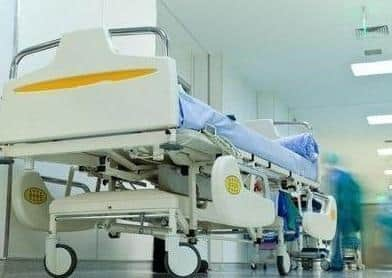12-hour waits at A&E treble over Christmas
and live on Freeview channel 276
In one of the starkest illustrations yet of the crisis facing the Northern Ireland health service, figures released by the Health and Social Care Board today show that 2,435 people spent at least 12 hours at A&E during the fortnight between December 20 and January 3.
The year before, less than a third of that number had to wait such a long time over the Christmas and New Year period at 723.
Advertisement
Hide AdAdvertisement
Hide AdThis is despite an overall decline in the number of patients actually attending A&E this year compared to last year .


Between December 20 and January 3 this year, there were 24,926 attendances at emergency departments.
During the same period the year before, the figure was 26,955.
The news comes amid an industrial dispute that has seen nurses, paramedics, carers, and a range of other healthcare workers take part in strike action.
Advertisement
Hide AdAdvertisement
Hide AdFurther strike action involving members of the Royal College of Nursing and Unison is due to take place today.
The Health and Social Care Board said “radical transformation of services” is needed to stop the situation getting even worse.
A spokesperson said: “We would pay tribute to our staff who are working tirelessly to ensure that patients receive the care that they need.
“Health service organisations have repeatedly made it clear that the 2019/20 winter period would again bring serious challenges. Despite the plans in place, some patients have had to wait for unacceptably long periods in Emergency Departments – for that we sincerely apologise.
Advertisement
Hide AdAdvertisement
Hide Ad“The challenges are in part due to an increase in older, sicker patients attending Emergency Departments. These patients will often require longer in-patient stays and then more complex social care packages when they are ready to leave hospital.
“The well documented workforce shortages, as well as the impact of flu and the norovirus have also compounded the pressures.
“All HSC organisations will continue to work closely to ensure that the most urgent and sickest patients are prioritised.
“In the longer term, we need a radical transformation of services. The Department of Health is currently carrying out a review of urgent and emergency care to establish a new regional care model for the next 10-15 years. An initial report is expected early 2020, which will outline the current challenges facing urgent and emergency care services and explore some potential solutions.”